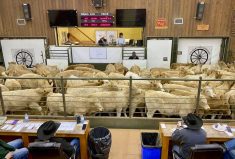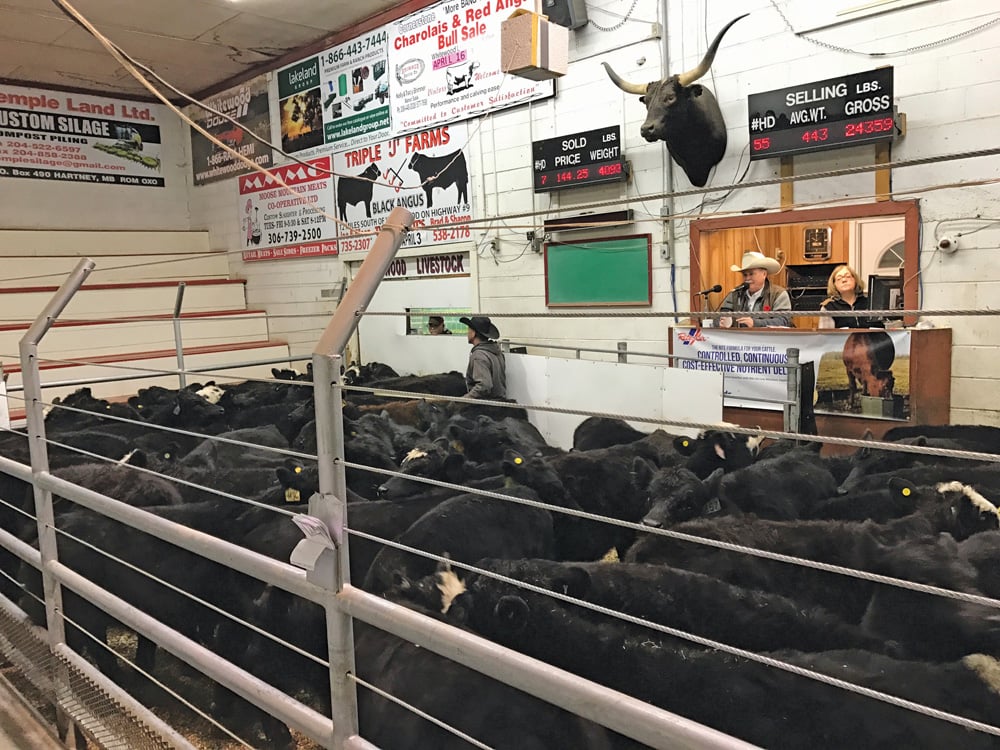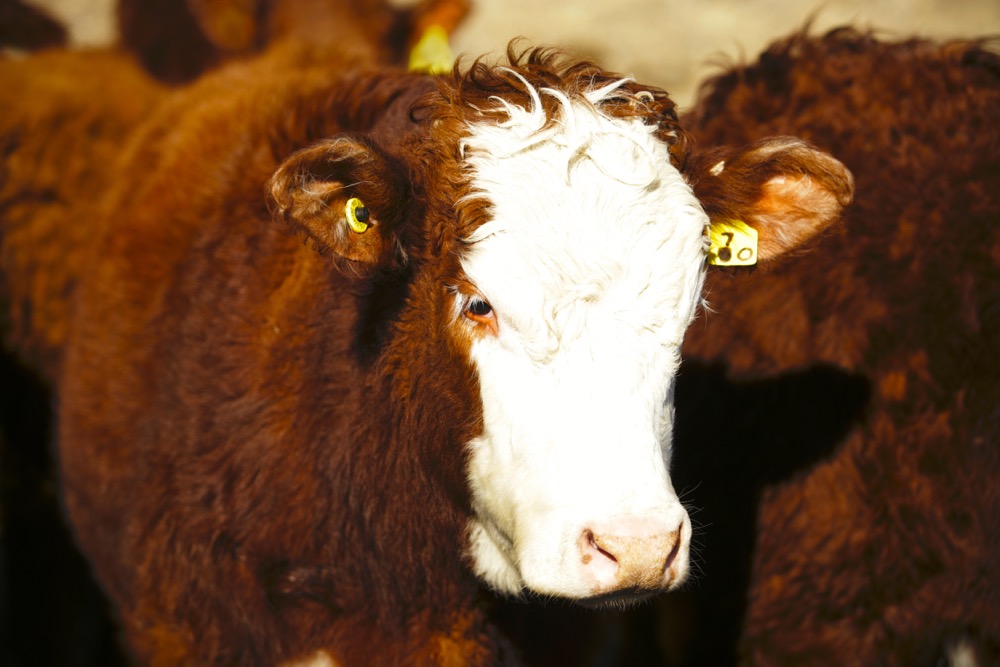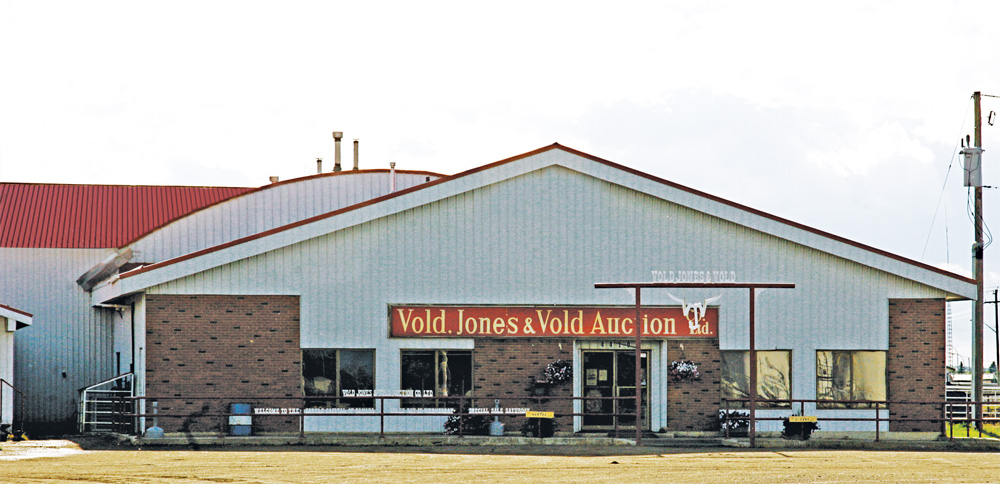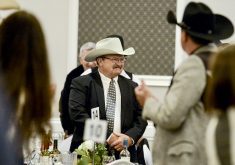The stands are packed and have been for hours in May at the Olds Auction Mart. The morning wanes into noon, and people file in and out of the auction arena, leaving with empty hands and returning with food. The afternoon brings some of the first high temperatures of the year, and someone opens the doors to let in the breeze.
But never once does the sale stop.
An auctioneer steps to the mic as the previous one leaves. He settles into the seat, turning to the opening gates as his first lot runs into the ring. He knows he only has this one opportunity to impress the judges before he walks off the stage and the next auctioneer participating in the 2023 Livestock Market Association of Canada Auctioneering Championship steps up.
Read Also
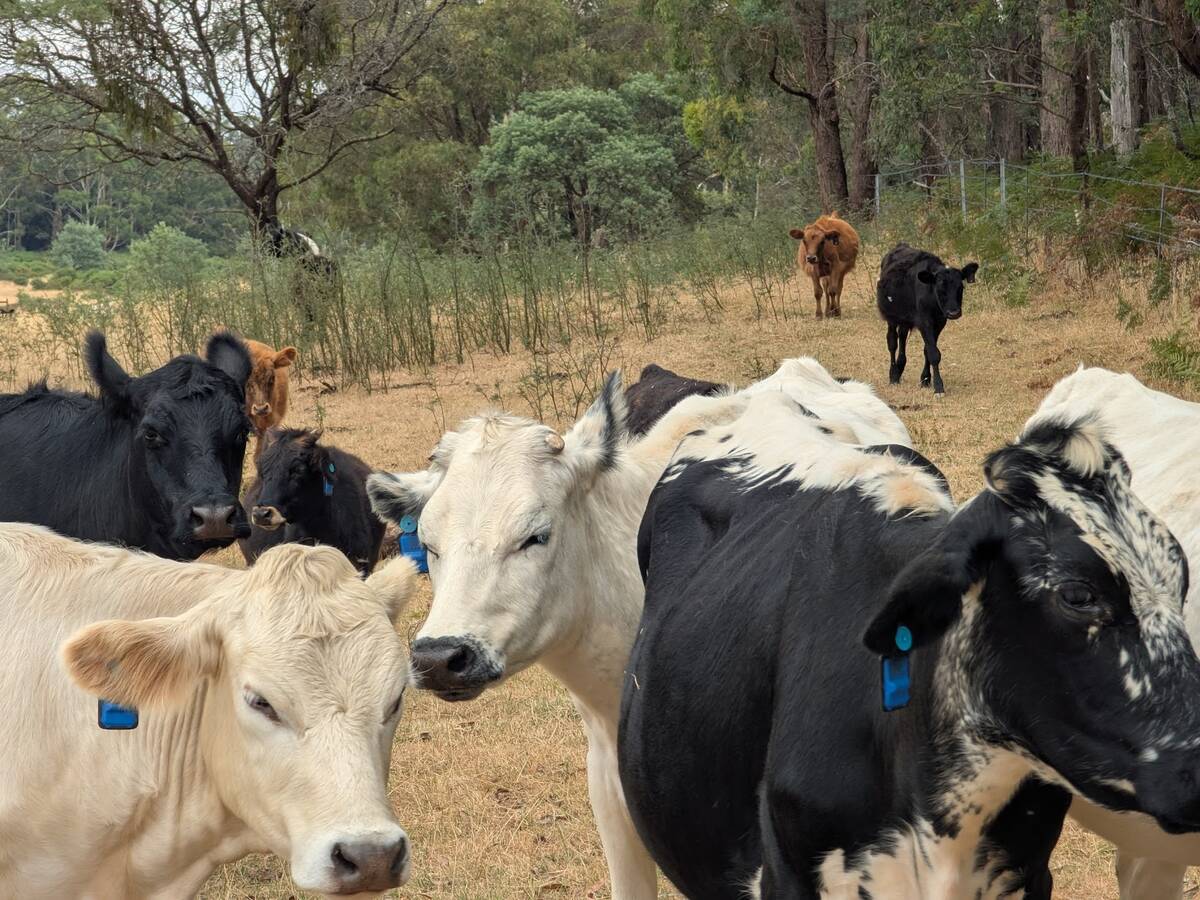
Australian company brings ear-tag tech to Canadian pastures
With Smart Paddock, beef farmers and ranchers can track their cattle through GPS technology
Top of the game
Jesse Lawes has entered this auctioneering competition three times. As a competitive person, he says he made it one of his goals to win the whole thing.
On May 13, the day after the competition, Lawes finds himself sitting through a couple of hours at the banquet, waiting to find out if he has been successful this time.
Finally, the top 10 auctioneers are called and Lawes waits. He waits some more as the runners-up are announced, and he’s not among them. It either means he’s won, or he hasn’t placed.
Luckily, it’s the former.
“It’s been a huge goal of mine to try and be at the top of the auctioneering game,” Lawes says. “I think it’s just one part of being the best cattle marketer that you can be. And being a third-generation auctioneer, and it’s something our family is somewhat known for, it just feels good to be able to reach a high level.”
Growing up at the auction
Lawes spent his childhood attending sales and listening to auctioneers at the Provost Livestock Exchange in northeastern Alberta. Maybe that has even more influence when one of the auctioneers is your father, doing what his father before him did, too.
“I was always a sale guy, really liked the excitement of the sale,” Lawes says. “And then I guess when you mix in a little bit of being outside working in the back, your mind likes to try and make yourself useful up front so you could get to sit down for a little while. But I always liked the auctioneering and admired it. It’s a skill that is pretty tough to get. I just liked the challenge, I guess, working at it, trying to be as good as I could be.”
And with Provost being such a familiar place for him and his brother Casey, it was only a matter of time before they found themselves behind the microphone. After they both went to auctioneering school in 2010, the Lawes brothers came home to start selling. Lawes says everybody at Provost was encouraging to young people interested in the business.
READ MORE: Auction marts face changing industry
“It was probably sometimes a bit painful for buyers, listening to both of us try and learn our way through it.”
He didn’t start out auctioneering, though. Initially, Lawes went pro in rodeo, and travelled across the world competing in steer wrestling. But he always made his way back home, to the Provost Livestock Exchange. His grandfather had bought the livestock exchange in 1976, and now his parents own and operate it.
These days, he works at Provost as a fieldman, as well as at the Vermilion Livestock Exchange, which his parents recently purchased, as well.
“My brother and I are both full-time now and have been for the past five years. But we grew up there working part-time through school and then when we were in college, and we were always back. We’ve kind of always just grown up there.”
Craft
Lawes went to auctioneering school in 2010 and started selling more often in 2014. With the encouragement of other auctioneers, he went to his first competition in 2019.
From there, he got serious about not just selling the cattle, but the act of selling. Lawes says he started to “hone in on the craft,” and adds there’s “a real camaraderie” among the livestock auctioneers competing at that level. They were “really helpful,” he adds.
Auctioning cattle isn’t yelling numbers into a microphone at a fast rate — it’s a chant that auctioneers perfect over time. Auctioneers need to be able to convey information and maintain the sale’s momentum, all while keeping the audience engaged. The fast-paced chant of the auctioneer is intended to help move the sale along at a quick speed.
An auctioneer’s chant is usually a series of numbers as the bid price climbs connected by filler words. Lawes, however, keeps his chant simple. His instructors at the Billings Auctioneer School in Montana recommended minimizing filler words, using rhythm instead.
“It was really raw at the start. I just said the numbers and tried to make it as rhythmic and appealing to the ear, if you will, as I could. And then as time progressed, and (with) hours behind the mic, certain words kind of started to fall into place.”
Lawes says it’s important to him that the numbers are clear in his chant, so that is what he focuses on.
Price discovery
Now, after years as an auctioneer and at the top of his game, Lawes says his favourite part of auctioneering is the true price discovery element of the auction marts.
“There’s nothing more fulfilling than having the stands full of people and a product you’re selling, lots of interest and then competitive bidding. And it’s just true price discovery,” he says. “I think it’s a real fair way to trade and it really works good.”
Lawes isn’t just an auctioneer or a fieldman, he’s also a rancher. And from that perspective, he recognizes the importance of auction marts.
“I’ve grown up with the understanding that an auction market or some sort of auction method of marketing is a very fair and honest way to establish the highest possible price for the commodity that you’re marketing,” Lawes says.
“And without auction barns and cattle marketers, it becomes pretty tough to market cattle.”
International competitions
After attending the Livestock Market Association of Canada championship for the third time and now winning it, Lawes commends the association for the event they put on.
“It’s a really great event and all the guys that guys like me looked up to — and probably more young people will look up to in the future — they all come back and it makes it a really good event,” he says.
After winning the association’s auctioneer competition in Olds, Alta., in May, Lawes qualified for the International Auctioneer Championship, which took place at the Calgary Stampede in July 2023. He placed fourth in this competition. Now, his goal is to take it all.
Lawes could also compete in more international competitions that take place around the world, but with his growing family, he is hesitant to devote that time.
“It’s a big commitment and lots of travel into the U.S. And I maybe have done enough of that in my rodeo career.”
Advice
As the 2023 LMAC champion, Lawes has reached a similar level as those who helped him at the start of his career. So what advice does he have for up-and-coming auctioneers?
“Probably one of the most important things about being a good auctioneer is being comfortable behind the mic and comfortable in front of a crowd and speaking kind of off the cuff and going with the flow,” Lawes says.
“There’s so many people out there that will help you. So I guess ask for help. Never turn down an opportunity to sell or talk to a crowd through a mic.”





